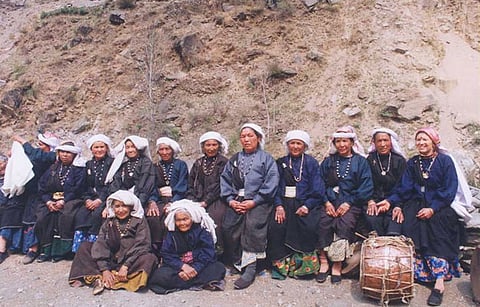Chipko Poet and His Songs
In the remote forests of Uttarkhand, -where Chipko activists battled to save trees from the axe, one voice strove for many years to bring them cheer and to boost their morale: Ghanshyam Raturi Sailani, writer, composer, and singer of Garhwali songs, and a social activist in the Gandhian tradition.
Sailani was born on 18 May, 1934 in Charigad village (Kebhar Patti of Tehri Garhwal district) to a priest family. Though learned in scriptures, the narrow confines of traditional religious practices could not contain young Sailani's rebellious and crusading spirit. When he learned that Gaur Das, a low-caste drum beater who provided his services at all the religious functions was, however, not permitted to observe the ceremonies at Sailani's home, Sailani went and read the scriptures in the home of Gaur Das. For his defiance Sailani was badly beaten by the village elite. He responded by joining the movement against untouchability in the princely state of Tehri, and by 1960, he was fully involved in the Sarvodaya movement.

